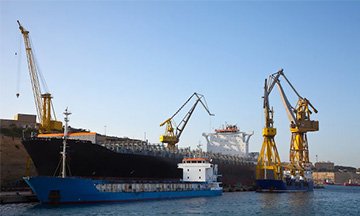Logistics Engineer Course
| Date | Format | Duration | Fees | |
|---|---|---|---|---|
| 27 May - 31 May, 2024 | Live Online | 5 Days | $2250 | Register |
| 03 Jun - 07 Jun, 2024 | Live Online | 5 Days | $2250 | Register |
| 29 Jul - 02 Aug, 2024 | Live Online | 5 Days | $2250 | Register |
| 23 Sep - 27 Sep, 2024 | Live Online | 5 Days | $2250 | Register |
| 18 Nov - 22 Nov, 2024 | Live Online | 5 Days | $2250 | Register |
| 09 Dec - 13 Dec, 2024 | Live Online | 5 Days | $2250 | Register |
| Date | Venue | Duration | Fees | |
|---|---|---|---|---|
| 06 May - 10 May, 2024 | Dubai | 5 Days | $4750 | Register |
| 13 May - 17 May, 2024 | New York | 5 Days | $5695 | Register |
| 17 Jun - 21 Jun, 2024 | New Delhi | 5 Days | $5350 | Register |
| 17 Jun - 21 Jun, 2024 | Dubai | 5 Days | $4750 | Register |
| 15 Jul - 19 Jul, 2024 | Dubai | 5 Days | $4750 | Register |
| 26 Aug - 30 Aug, 2024 | Dubai | 5 Days | $4750 | Register |
| 09 Sep - 13 Sep, 2024 | Cairo | 5 Days | $4950 | Register |
| 16 Sep - 20 Sep, 2024 | Dubai | 5 Days | $4750 | Register |
| 14 Oct - 18 Oct, 2024 | Dubai | 5 Days | $4750 | Register |
| 04 Nov - 08 Nov, 2024 | Lagos | 5 Days | $4950 | Register |
| 11 Nov - 15 Nov, 2024 | Dubai | 5 Days | $4750 | Register |
| 23 Dec - 27 Dec, 2024 | Dubai | 5 Days | $4750 | Register |
Course Overview
What is Logistics Engineering?
Logistics Engineering is a new engineering area dedicated to the optimal design and operation of a logistics system that includes material and finished goods forecasting, procurement, transportation, manufacturing, storage, distribution, and warehousing. It entails the planning and integrating material, information, and financial flows along the supply chain to best support the organisation’s objectives. You will study how to manage product transportation as a Logistics Engineering student through innovative process design, operations optimization, and analytics.
What does a logistician do?
You’ll collaborate on projects with industry partners, providing lectures and workshops to help you along the way. You’ll learn about data simulation, IT programming, and intelligent warehousing, as well as assessing processes and building process designs. Participating in project work will help you hone your collaboration, communication, and leadership abilities. Company visits, lectures from industry experts, and two internships give you a taste of what it’s like to work in the real world.
This Zoe training course program will provide you with all the necessary abilities to work as a qualified logistic engineer. The course covers all essential aspects of materials and finished goods forecasting, procurement, transportation, manufacturing, storage, distribution, and warehousing, giving you the experience and confidence to take on responsibilities in these areas. You will also have additional possibilities to emphasize your talents and potential due to this course. You will be invited to different growth opportunities across a variety of organisations.
Course Objectives
The fundamental objective of this logistics engineer course is to empower professionals with:
- A clear understanding of logistics management principles to apply in dynamic, resource-constrained contexts.
- Introduction of the critical concepts of logistics operations, logistics optimization, quality engineering, and quality management of industrial systems and products
- In-depth knowledge about underlying principles and assumptions as well as the resulting limitations and practical issues of their application
- An excellent understanding of engineering concepts and tools to investigate, design, and implementation of a logistic system
- Analytical capacity to address emerging challenges in the logistics industry concerning design and development of new logistics technology and application
- Enhanced knowledge to operate, expand, and optimize a logistics system or supply chain network
Training Methodology
The teaching strategy of the program is mainly lecture-based. Additional teaching strategies include:
- Individual and group assignments
- Lectures on core concepts are presented through PowerPoints
- Discussion of case studies and questioning answering sessions are encouraged
- Class sessions reinforce and apply the lecture content through practical exercises
- Time outside class sessions consists of watching lectures, reading material, and completing exercises to prepare for class
Similar to all our acclaimed courses, this logistics engineer course follows the ‘Do-Review-Learn-Apply’ methodology.
Organisational Benefits
With professionals undertaking this training course, their organisations will benefit in the following ways:
- Practical and precise understanding of the supply chain processes and implementation by experienced and trained professionals
- Effective implementation of management techniques in the organisation to create an inclusive working environment
- Organisational growth and development because of accurate investigation and analysis to improve the supply chain activities in the organisations
- Enriched understanding of the prerequisite requirements of international trade & logistics world
- A piece of detailed knowledge and expertise in aligning supply chain networks
- A firm branding because of vigorous training provided to employees to improve their professional portfolios and increase their possibility for career development
- Improved traditional management aiming at integration of organisations amongst various supply chain management partners
- Enhanced comprehension of development and application of analytical tools and approaches in the operations of logistics and supply chains systems
- A practical and accurate understanding of developing logistics networks to minimize costs and to provide the best customer services
- Foundational skills for managing complications while providing a competitive advantage due to superior logistics management
- Building proficiency in transportation and warehousing for large scale and global supply chains
- The required skills to help plan production schedules
- Detailed understanding and expertise about the increasingly complex technical aspects of supply chains
Personal Benefits
Professionals enrolling in this training course will derive the following benefits:
- In-depth understanding of the importance of logistics and supply chain management techniques and possible outcomes
- A sound foundation in business that will assist you understand business as a whole while helping you to develop a holistic approach to the work environment
- Comprehensive understanding of the processes to achieve a firm competitive advantage
- The enhanced skills, knowledge, and expertise distinguish you from your contemporaries
- More career opportunities to quickly enter into diverse levels of managerial positions Personality development as well as increased knowledge to have people management, presentation, and communication skills
- In-depth understanding of the processes such as inventory planning, distribution planning, logistics management, import and export management, transportation management, and supply chain management
- Advancement in expertise and knowledge about the latest trends and issues in the field
- A better understanding of supply chain strategies and implementation of supply chain planning
- A clear understanding of the logistics system dynamics and to consider actions accordingly
- A clear understanding of various aspects of a business informed decisions in creating a competitive infrastructure and synchronizing supply and demand
Who Should Attend?
- Individuals who want to gain knowledge about logistics systems or supply chain network
- Higher-skilled workers who want to achieve professional core competencies in logistic and supply chain
- Supply-chain front-line material handling workers (entry-level)
- Workers from factories to warehouses, to distribution centers to transporters
Course Outline
Module 1: Forecasting and Demand Management
- Forecasting overview
- Times series approaches
- Regression methods and procedures
- Latest forecasting models & demand planning.
- Pricing and profits optimization with aptitude limitations
Module 2: Logistics Engineering
- Customer services
- Inventory management
- Diverse logistics strategies
- Supply chain assimilation and logistics network design
- Notions and apparatuses for effective design and supply chain management system
Module 3: Enterprise Engineering
- Enterprise scalability
- Systems and vertical integration
- Systems design and application
- Enterprise functions & procedures
- Enterprise engineering procedures and practices
Module 4: Inventory Control System
- Cost data for effective systems investigation
- Non-traditional inventory control systems design
- Disadvantages of traditional inventory management
- Development of numerous inventory system models
- Analysis of an appropriate collection of demand approaches
Module 5: Total Quality Management for Engineers
- Quality centre integration
- Scientific management experimental design
- TQM fundamentals & historical development
- Principles & tools of total quality management (TQM)
- Quality function deployment (QFD) benchmarking
Module 6: Quality Engineering
- Types of design quality
- Quality engineering process
- Designing high-quality products
- Quality control concept in engineering
- Challenges and methods at low cost
Module 7: Industrial Financial Decisions
- Types of financial decisions
- The financial & accounting procedures
- Critical steps for effective data planning
- Monitoring and directing industrial activities
- Accounting concepts and methodical approaches
Module 8: Design of Production Systems
- Production system design
- Principles of plant layout
- Effective development of plant layout
- The method of an industrial enterprise
- Features of design & process reengineering
Module 9: Simulation Models of Engineering Systems
- Simulation procedures
- Types of models in engineering
- Engineering design process models
- Phases of the engineering design process
- Software process improvement methods
Module 10: Applications of Operational Research (OR) in Manufacturing
- OR techniques overview
- Plant layout complications
- Manufacturing process selection
- Computer performance evaluation
- Components & stages of production scheduling
Module 11: Integer Programming
- Mixed-integer models
- Integer Programming overview
- Integer Programming vs. linear programming
- Approaches to solving large-scale integer linear program
- Formulating and resolving decision-making concerns with discrete decision variables
Module 12: Advanced Engineering Project Management
- An overview
- Stages of system analysis
- Project management stages
- Phases of a project life cycle
- Engineering projects management through case studies and research assignments
Module 13: Stochastic Optimization overview
- Robust optimization vs. stochastic programming
- Types of decision models
- Stochastic large-scale models
- Decision-making models under uncertainty
- Decisions, Data and Models
Module 14: Advanced Industrial Systems Simulation
- Type of simulation languages
- Simulation of industrial systems
- Advanced simulation procedures
- Categories of simulation models
- High-performance simulation programs
Module 15: Network Flow Analysis
- Types of network flow analysis
- Minimal cost flow algorithms
- Enterprise system configuration
- Deterministic and stochastic network flow analysis
- Enterprise functions, standard operation processes, and data management & elements of user interface
Module 16: Enterprise Systems Configuration & Collaboration
- Enterprise systems overview
- Collaborative engineering and environment
- Decision processes & changes management
- Enterprise functions, standard operation processes, and data management & elements of user interface
- Virtual enterprise operation systems & hands-on experience with a commercial enterprise operation system
Module 17: Enterprise Systems Integration & optimisation
- Master and transaction data transfer
- Supply networks overview & planning
- Optimal systems and procedure design
- optimization techniques and heuristics
- Enterprise architectures & workflow modelling and design
- Systems integration procedure including vertical and horizontal integration
Module 18: Advanced Production Planning and Control
- What is advanced production planning
- Steps in production planning & control
- Logical and algorithmic planning practices
- Development and scheduling technologies
- Sequencing directions, strategies control, and line balancing method











